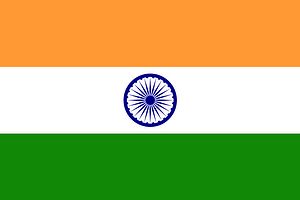Although international attention is becoming increasingly focused on the People’s Liberation Army, it’s still economic muscle that is boosting China’s geopolitical influence, enabling it to compete with the United States for primacy in Asia, Africa and now South America. By creating a web of economic dependence that would make separation practically impossible, and by setting out ‘red lines’ that need to be respected for such ties to continue, Beijing has dampened Washington’s ability to influence non-European chancelleries into positions counter to Chinese interests.
The expectation in Beijing is that the Atlanticist view will continue to prevail in Washington, thereby limiting cooperation with the world outside North America and Europe. However, especially since the 2008 election of Barack Obama, some analysts have begun to ask why major non-NATO powers such as India, Indonesia, Brazil and South Africa ought not to be as much US partners as Britain or France are.
Such a re-appraisal has gone farthest in the case of India, where since the George W Bush administration, efforts have been made within the labyrinth of US bureaucracy to liberate US-India relations from the many restrictions and sanctions that have been imposed on the country since Zbigniew Brzezinski (who seems to have been unable to shed his Euro-centred vision, despite his exile from his native Poland) was National Security Advisor in the 1970s. As yet, though, such efforts have had only partial success, given the near-stranglehold that Atlanticists have over US strategic policy. To this tribe, anything not European is beyond the pale, to be fobbed off by sops and flattery rather than by more substantive moves.
As a result, the 21st century trajectory of Sino-Indian relations will depend on US policy towards India, and on whether Washington will accept Delhi as a global power with the same privileges as France and Britain. Should such a transformation take place in US-India relations, there will be little space left for Beijing to play with. China would like to see Delhi lapse back into the Nehruvian mould of ‘non-alignment,’ as a consequence of which India was left with no significant friends in the event of crises such as the Pakistan effort to detach Kashmir from the Indian Union and the 1962 attack by the PLA on Indian military formations in Ladakh and the north-east of the country.
At that time, both the United States and Britain insisted on a Pakistan-friendly settlement of the Kashmir issue before releasing the sluice gates for substantial military assistance to India, thereby losing an opportunity to forge an alliance with Asia’s other giant. Similarly, in the 1990s, after the collapse of the USSR, Bill Clinton squandered the opportunity of an alliance with India by once again harping on Kashmir.
After decades of effort at containing India by propping up the Pakistan and Bangladesh militaries, Beijing is unlikely to jettison such friends in favour of an India-centric policy in South Asia. Clearly, China would like to see India retreat into its neighbourhood, abandoning the eastward push that was introduced during the 1990s by Prime Minister P V Narasimha Rao. It would also like to ensure that a US-India alliance doesn’t form, one that could threaten its drive for primacy in Asia.
Of course, all this proceeds on the assumption that the Obama administration will be able to fend off the Atlanticist instincts of the Talbotts and the Clintons, and offer India an equal place at the high table of US diplomacy. The more it becomes clear that Washington is embarking on such a transformational course, the greater will be the impetus within Beijing for initiatives designed to woo India away from an embrace with the United States.
Madhav Das Nalapat holds the UNESCO Peace Chair and is Director of the Department of Geopolitics at Manipal University in southern India.

































